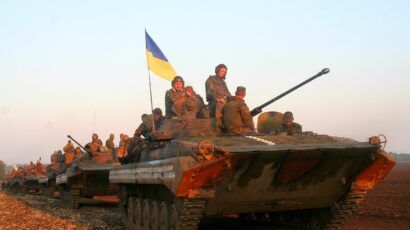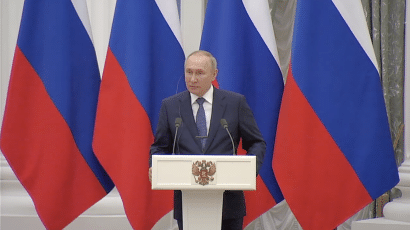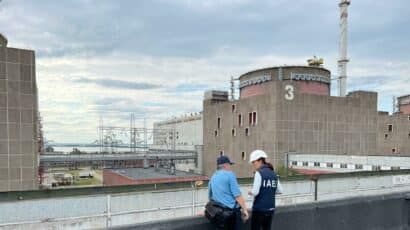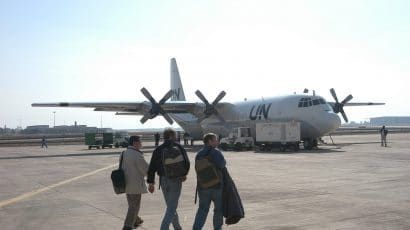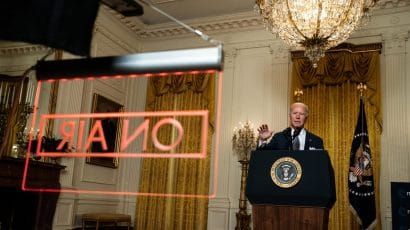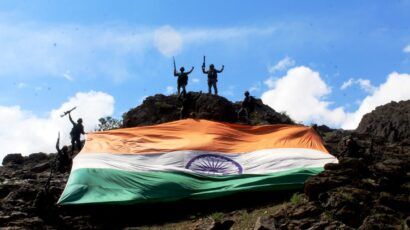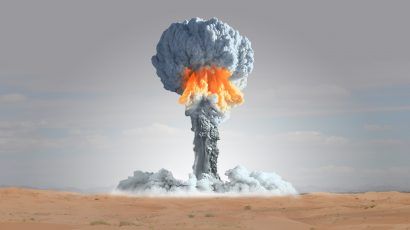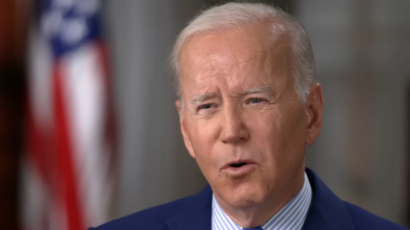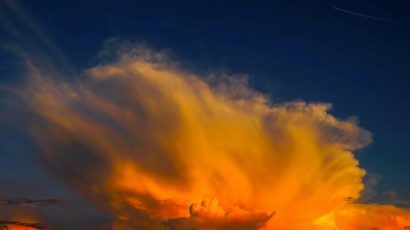Search results for nuclear terrorism
Putin reminds everyone that Ukraine joining NATO could lead to nuclear war
Three days ago, in a jarring answer to a question from the media, Russian President Vladimir Putin said allowing Ukraine to join NATO would increase the prospects of a Russia-NATO conflict that could turn nuclear.
Russian actions at Zaporizhzhia show need for better legal protections of nuclear installations
With the war in Ukraine, the risks nuclear facilities are facing have changed. And so should the current nuclear security regime.
Trust but verify: How to get there by using next-generation nuclear verification and warhead dismantlement techniques
The next generation of arms control agreements may require new verification tools to achieve ambitious objectives, such as including all nuclear weapons—deployed or non-deployed, strategic or non-strategic—and nuclear warhead dismantlement. Physics can play a key role.
Foreign commercial banks: The essential partner in future discussions of the Iran nuclear deal
Before any serious discussions of a renewed Iran nuclear deal get underway, international commercial banking interests (not just government finance ministers) must be given an opportunity to provide substantive input—because, as a practical matter, these private enterprises will have the final say as to how much sanctions relief Iran effectively receives.
Conditional restraint: Why the India-Pakistan Kargil War is not a case of nuclear deterrence
In the 1999 Kargil War, India defended its territory from a Pakistani incursion but chose not to expand the war with counter-attacks onto Pakistan soil. But in a future conflict India may be encouraged to take especially risky and escalatory wartime actions, posing a test for nuclear deterrence.
Challenges for the Bulletin of the Atomic Scientists at 70: Restoring reason to the nuclear debate
The following is a keynote address by Gareth Evans at the Bulletin of the Atomic Scientists’ Annual Clock Symposium, convened in Chicago on November 16, 2015.
Why the financial community should work to prevent the market and economic shocks of a nuclear incident
The risks of a nuclear incident—including the detonation of a nuclear bomb or dirty bomb, or a cyberattack on a nuclear power plant—have been discussed ad nauseam. Investment icon Warren Buffett and many international security experts have expounded on the significant risks of a nuclear incident in the coming decades. Many experts, in fact, actually … Continued
What if you don’t trust the judgment of the president whose finger is over the nuclear button?
A professor of international law looks at some largely unexamined worst-cases in command-and-control of America’s nuclear weapons.
Measuring radiation doses in mass-casualty emergencies
In a nuclear attack or a severe power plant accident, how are large numbers of radiation victims supposed to be treated if they can't even be diagnosed?
TV and the Bomb
What portrayals of nuclear fear on mid-century television can tell us about ourselves today.
Out of sight, out of mind
Dirty diapers, fracking fluids, and nuclear waste don’t go away just because they’re hidden underground.
Quantum computing, biotech, and climate change among threats of most concern to US
US national security is focused on terrorists with nukes, “megacorporations,” and underwater swarming drones, among other long-range emerging threats.
Rethink oldthink on no first use
It is time to adjust US nuclear declaratory policy, because the circumstances that led US leaders to reserve the option to use nuclear weapons first in a conflict are long gone.
Biden focused on strategic stability. His successor should embrace arms control
Despite Biden's attempts to stave off crises, global nuclear buildups mean the next president will face a rocky road to arms control.
Four lessons from Fukushima: Improving emergency response
It appears that the managers of the Fukushima Daiichi nuclear power plant, taken by surprise, did not know exactly what to do after a massive earthquake and tsunami struck the plant on March 11. Experts in the United States, thousands of miles away, had a duty to provide timely, helpful advice. Both the press and US officials failed. In particular, the US Nuclear Regulatory Commission's recommendation to stay at least 50 miles away from Fukushima was inappropriate and may have caused unnecessary panic.
JEDI: Outlook for stability uncertain as Pentagon migrates to the cloud
As the Pentagon migrates vast amounts of data, including some nuclear secrets, to a private-sector cloud service, will incentives to launch nuclear war increase?
Reflections on Fukushima: A time to mourn, to learn, and to teach
As a physicist, I have spent my life hoping that nuclear power could realize its potential. My teachers were scientists who had penetrated the nuclear world for the first time. They told those of us who were studying physics in the pre-1960s era that we could have all the fun they had had, as the domain of analysis moved down in scale from the nucleus to the hadrons and leptons of the sub-nuclear zoo. But, with that fun, came a second assignment: Our generation had to ensure there was no further use of nuclear weapons.
Sanctioning Iran further won’t work
As 2010 began, Iranian Foreign Minister Manouchehr Mottaki intensified the nuclear standoff between Iran and the United States when he announced that by the end of the month the West must accept Tehran's counterproposal to a U.N.-brokered deal to meet Iran's nuclear fuel needs. Iran's counteroffer rejects a plan that the West insists had been agreed upon in principle to swap Tehran's low enriched uranium for ready-to-use nuclear fuel.
Cyberweapons: Bold steps in a digital darkness?
In 1945, the United States organized a committee to investigate whether nuclear weapons should become a central military technology, or whether to abjure the weapons and, through self-restraint, avoid a costly and potentially deadly nuclear arms race. Led by Undersecretary of State Dean Acheson and Chairman of the Tennessee Valley Authority David Lilienthal, the committee produced the eponymous Acheson-Lilienthal Report, which, after it failed to gather reasonable support, marked a turning point in the Cold War and signaled the beginning of the nuclear arms race.
